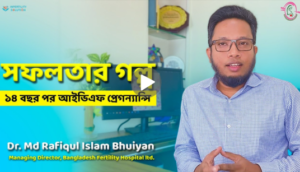
What is the most successful treatment for infertility?
The most successful treatment for infertility depends on the underlying causes. Assisted reproductive technologies (ART), such as in vitro fertilization (IVF), have shown high success rates. IVF involves fertilizing an egg with sperm outside the body and implanting the embryo into the uterus. However, success rates can vary based on factors like age, health, and the specific infertility issues. Other effective treatments include intrauterine insemination (IUI), fertility medications, and addressing underlying medical conditions. Consultation with a fertility specialist is crucial to determine the most suitable and effective treatment based on individual circumstances.
Embarking on the journey to parenthood is an emotional and often challenging process for couples facing infertility. The field of reproductive medicine has witnessed remarkable advancements, offering a variety of treatments to address diverse causes of infertility. In this blog post, we’ll explore some of the most successful treatments for infertility, providing hope and guidance to those on the path to starting or expanding their families.
Understanding Infertility:
Infertility is a complex issue that can affect both men and women, and it often requires a thorough assessment to identify the root causes. Factors such as age, hormonal imbalances, structural abnormalities, and lifestyle play crucial roles in determining the most appropriate treatment.
.
- In Vitro Fertilization (IVF):
- IVF stands out as one of the most successful and widely utilized assisted reproductive technologies. This technique involves fertilizing an egg with sperm outside the body and implanting the resulting embryo into the uterus. IVF is particularly effective in cases of tubal factor infertility, endometriosis, and unexplained infertility.
- Intracytoplasmic Sperm Injection (ICSI):
- ICSI is often employed alongside IVF and involves the direct injection of a single sperm into an egg. This method is especially beneficial for male infertility issues, such as low sperm count or poor sperm motility.
- Preimplantation Genetic Testing (PGT):
- PGT is a powerful tool used in conjunction with IVF to screen embryos for genetic abnormalities before implantation. This technique not only reduces the risk of miscarriage but also enhances the chances of a successful pregnancy, particularly for couples with a history of genetic disorders.
- Ovulation Induction and Timed Intercourse:
- Ovulation induction involves the use of medications to stimulate egg production, increasing the likelihood of conception. When combined with timed intercourse, this approach is beneficial for couples with ovulatory disorders.
- Laparoscopic Surgery:
- Laparoscopic surgery is a minimally invasive procedure used to address structural abnormalities in the reproductive organs, such as blocked fallopian tubes or endometriosis. Successful resolution of these issues can significantly improve fertility.
- Sperm Retrieval Techniques:
- For cases of male infertility, procedures like testicular sperm extraction (TESE) or percutaneous epididymal sperm aspiration (PESA) can retrieve viable sperm for use in assisted reproductive techniques.
- Lifestyle Modifications:
- Adopting a healthier lifestyle can have a profound impact on fertility. Maintaining a balanced diet, managing stress, and avoiding substances like tobacco and excessive alcohol can contribute to improved reproductive health for both men and women.
Conclusion:
The landscape of infertility treatment is diverse, and the success of each method depends on individual circumstances. Consulting with a fertility specialist is crucial to determine the most suitable approach based on a thorough evaluation of the specific causes of infertility. The journey to parenthood may involve a combination of treatments, and advancements in reproductive medicine continue to offer new possibilities for hopeful parents. Remember, every individual or couple’s journey is unique, and with the right guidance and personalized care, the dream of starting a family can become a reality.


